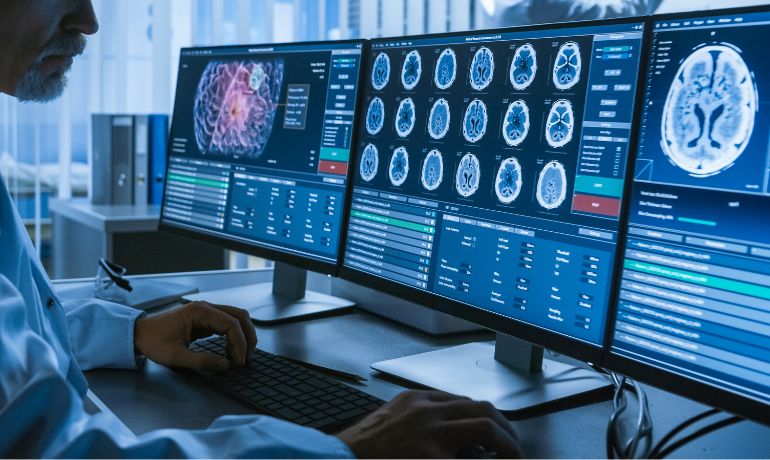A brain tumour is a potentially life-threatening condition where abnormal cells form and multiply within the brain. These tumours can significantly impact a patient’s cognitive abilities, affecting thinking, memory, and motor skills. Surgery is often the primary treatment option to remove or reduce the tumour and alleviate its effects on brain function.
When facing such a complex and delicate situation, it is crucial to seek the expertise of a skilled neurosurgeon. Dr. Chandra Sekhar, a neurosurgeon in Hyderabad, India stands as a beacon of hope for patients dealing with brain tumours. He has exceptional knowledge of brain functioning and the ability to interpret lab findings into clinical practice.
Dr. Chandra Sekhar performs advanced and efficient brain tumour surgery in Hyderabad for benign and malignant tumours. His extensive experience and commitment to patient care have earned him the reputation of being one of the finest neurosurgeons in Hyderabad.
A brain tumour, or intracranial tumour, is an abnormal mass characterized by uncontrolled cell growth and multiplication. The expanding tumour can exert pressure on adjacent brain tissues, resulting in diverse neurological symptoms and complications.
Initial treatment commonly involves surgical intervention to remove the brain tumour, alleviating pressure and enhancing overall brain function. While surgical removal is often sufficient for benign (non-cancerous) tumours, most malignant (cancerous) tumours necessitate additional therapeutic approaches, such as radiation therapy and/or chemotherapy, alongside surgery.
The following symptoms may accompany different forms of brain tumours, depending on the tumour’s location in the brain. Some of the common signs and symptoms of brain tumours include:
Brain tumours can be categorized based on their origin, behaviour, and location within the brain. Here are the main types of brain tumours:
These tumours originate in the brain and are the most common type of brain tumours. Primary brain tumours can be benign (non-cancerous) or malignant (cancerous).
These tumours have well-defined borders and grow slowly. They do not invade nearby tissues or spread to other body parts. Common types include meningiomas, pituitary adenomas, and acoustic neuromas.
These tumours are cancerous and can be aggressive. They can invade nearby brain tissues and potentially spread to other parts of the central nervous system. Common malignant brain tumours include glioblastoma multiforme, astrocytomas, oligodendrogliomas, and ependymomas.
These tumours are secondary tumours that originate from cancers in other body parts and spread to the brain through the bloodstream. The brain is a common site for metastasis from lung, breast, colorectal, and other cancers.

⇒ Sudden weakness or numbness
⇒ Difficulty speaking or understanding speech
⇒ Severe headache
⇒ Dizziness
⇒ Loss of coordination
⇒ High blood pressure
⇒ Diabetes
⇒ Smoking
⇒ Obesity
⇒ Sedentary lifestyle